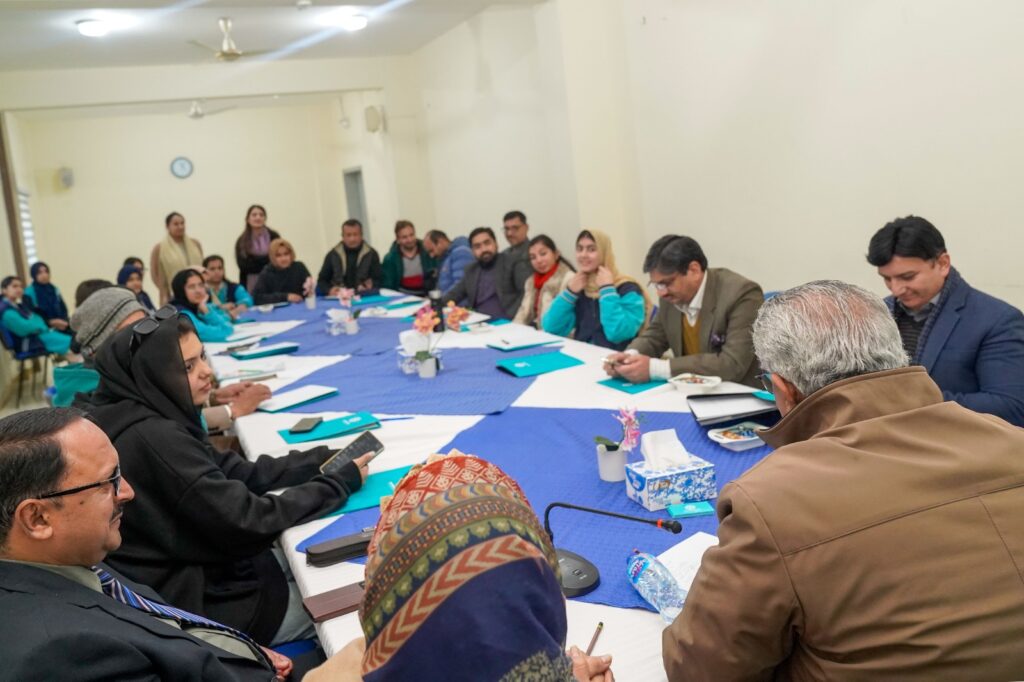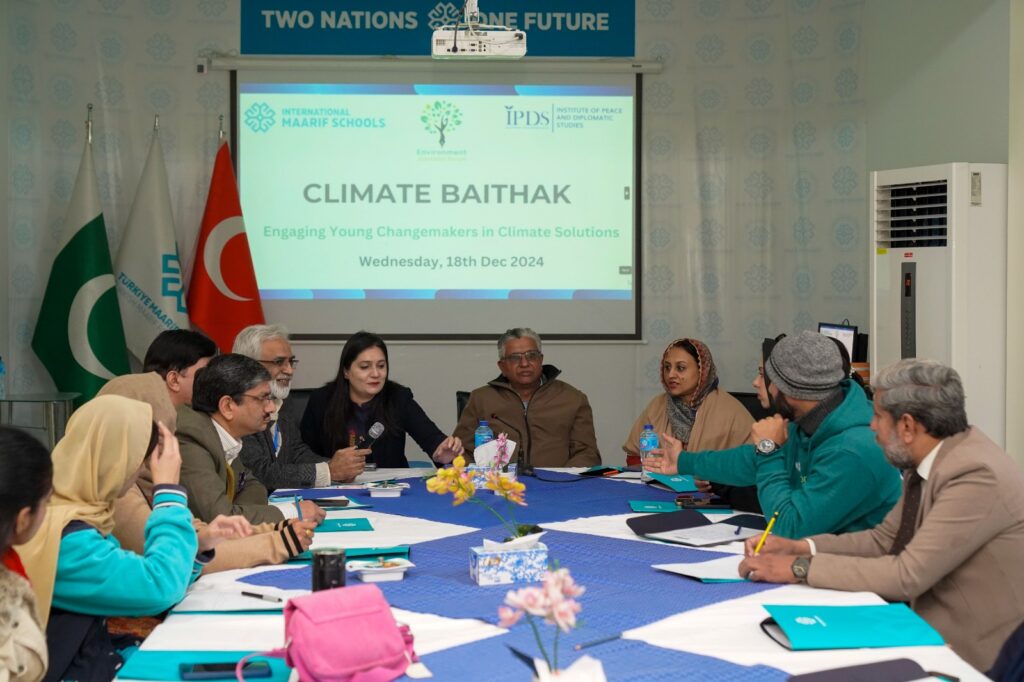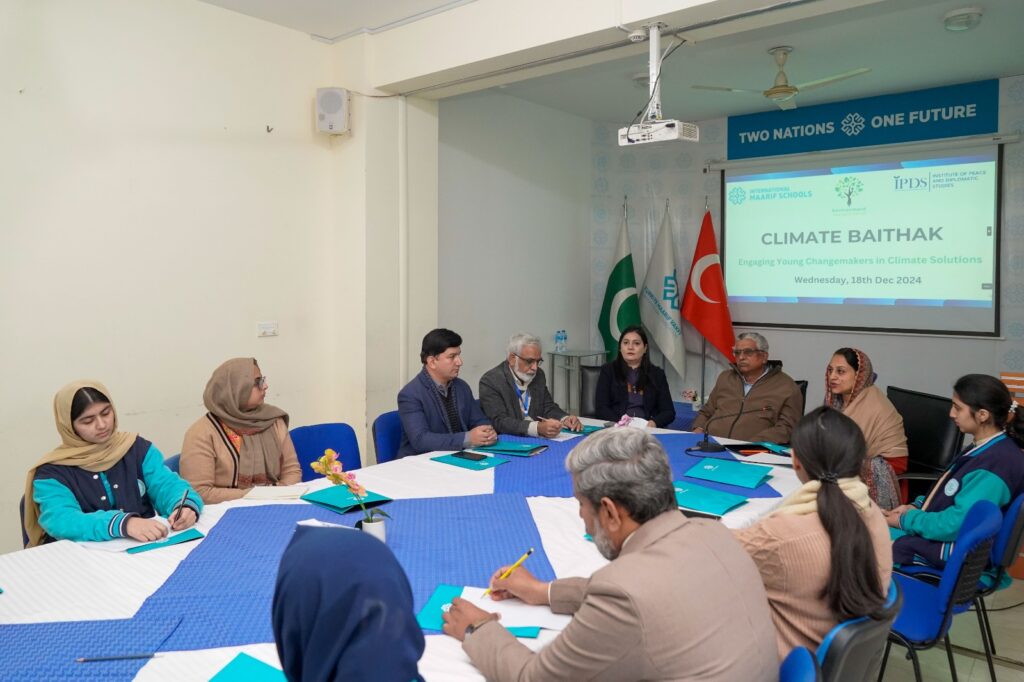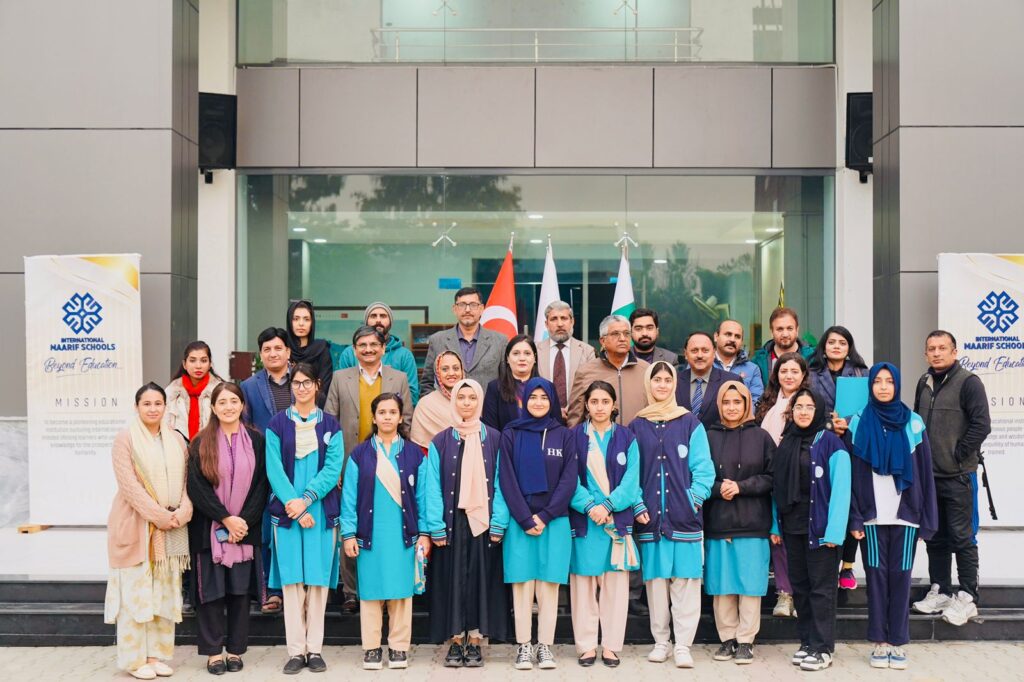
Youth-Led Climate Baithak Unites Experts, Media, and Think Tanks to Tackle Climate Change
Islamabad — Dr. Zaigham Abbas from Pak-EPA outlined the EPA’s proactive measures to address air pollution. “We have implemented stringent policies for vehicle emissions and waste management in the capital,” he said. The EPA’s ongoing initiatives to curb pollution include a successful push for cleaner technologies in industries and a partnership with Punjab to expand these efforts.
A dynamic gathering of young change-makers, experts, and environmental advocates took place today at the Climate Baithak, a collaborative event organized by the Institute of Peace and Diplomatic Studies (IPDS) and the Environment Journalist Forum (EJF). The event served as a platform to foster trilateral cooperation between media, academia, and think tanks, with the ultimate goal of accelerating climate action and addressing the global environmental crisis.

Farhat Asif, President of IPDS, emphasized the critical role of media and academia in driving climate action. “Climate change is threatening species across ecosystems to the brink of extinction. This gathering is a step toward collective action, where we can integrate solutions from different sectors to protect our planet,” she said.
Dr. Zerfishan Adnan of Maarif School shared her thoughts on the lack of awareness surrounding climate action. “While climate change and global warming are common topics of discussion, there is limited information on how to actively combat these issues,” she noted. Dr. Adnan highlighted a successful initiative by students at her school, which led to the reduction of single-use plastics and was eventually upscaled by the Environmental Protection Agency (EPA).

Asghar Hayat, Secretary General of EJF, and Ali Jabir, President of EJF, shared insights on the Forum’s journey and their efforts to raise awareness on environmental issues. “We’re engaging the youth to not only understand climate risks but also take concrete steps toward mitigating them,” said Hayat.
Dr. Ejaz Ahmed from the Institute of Urbanism discussed the alarming rate of urbanization and its impact on climate. “Pollution and deforestation are the major risks we face today. In Pakistan, urbanization has surged from 33% to 45%, leading to increased deforestation and pollution. We need to rethink urban growth,” he stressed.
Pakistan’s alarming waste problem was another central theme of the Baithak. Dr. Ahmed outlined how the country’s growing plastic and food waste crisis is contributing to environmental degradation. “Globally, 42% of waste is plastic, while 38% is organic. In Pakistan, food waste is at an unsustainable level, ranking us seventh globally. This needs urgent action,” he said.
Former IG Forest Syed Mehmood Nasir highlighted the impact of human intervention on ecosystems, citing the Margalla Hills National Park as a prime example. “We need to communicate scientific knowledge in simple terms to spur effective climate action,” he said.

As the Climate Baithak concluded, there was a renewed sense of urgency and hope. The event underscored the vital role of youth-led action, informed by expert guidance, in tackling climate change. As participants from diverse fields came together, it was clear that meaningful change is possible through collective, informed, and passionate action.